
Diane Kruger
‘There’s a lot of despair and loneliness in Los Angeles’
The German actress talks to EL PAÍS about her latest movie ‘Marlowe,’ moving from a small town to Paris and how her relationship with her mother has changed
RAQUEL PELÁEZ
27 October 2022
When Diane Kruger appears on the screen from her Parisian home, the voice of her four-year-old daughter Nova can be heard in the background. The actress has dedicated to Nova her first book of short stories, A Name from the Sky. At the end of the conversation, the child appears to sit on Kruger’s lap and explain in a timid voice that, during the Barcelona shoot of her mother’s last film, Marlowe, she learned how to count to 10 in Spanish.
Kruger, who will soon produce and star in a biopic of Marlene Dietrich, has a down-to-earth attitude. When the journalist mentions that John Banville, the author of Marlowe, which will be released in December, is obsessed with winning the Nobel Prize for Literature, she can’t relate. “I’ve never been obsessed with awards,” she says. “I’m obsessed with working, yes. With acting. You can’t judge the quality of your own work by awards, but by when they choose you and a great director gives you their approval.”
The actress was a star in France before her international career took off. She has appeared alongside Brad Pitt on several occasions, including in Troy and Inglourious Basterds. In Marlowe, she costars alongside veterans such as Jessica Lange, who plays her mother, and Liam Neeson, who plays the detective she tries to seduce.
Question. What did you learn from Lange and Neeson?
Answer. I had already worked with Liam Neeson in 2011 when I was still a beginner. I remember that he was a really calm, nice, patient guy, who was constantly paying attention to whether the rest of the team was doing well. The man I’ve encountered this time is exactly the same. It’s me who’s changed. With Jessica Lange, she really intimidated me. There is something about her that makes you see her as the primordial femme fatale. You can’t not feel her presence. If you were in a room with 100 supermodels and Jessica Lange entered, you wouldn’t be able to stop looking at her. It’s a pleasure to work with such experienced actors, because they do their job and they include you, but they also hope that you can resolve things with skill and professionalism.
Q. Has what you value about your work and your career changed over time?
A. When I decided I wanted to work in film, it was because I wanted a really dynamic life that allowed me to constantly change. I was always worried about the possibility of ending up trapped in a situation and then regretting not having tried to change it. And I think, actually, that that’s why I had children so late: because I haven’t stopped moving here and there, pushed by that sensation that has always followed me, that I’ve been really lucky for this world to accept me and every movie could be the last. Now I have a lot more fun. I’m more present when I film. I’m not afraid anymore, and I’m not so worried about what other people think of me.
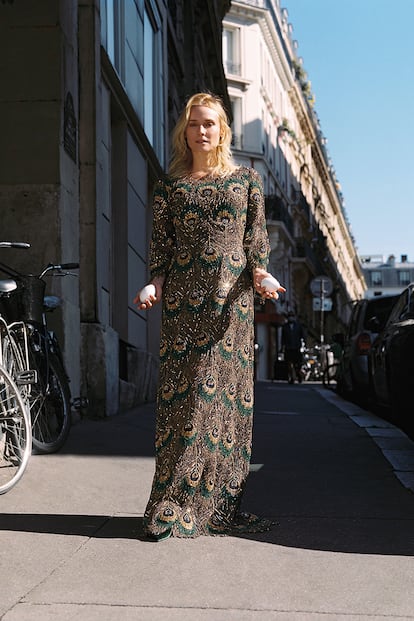
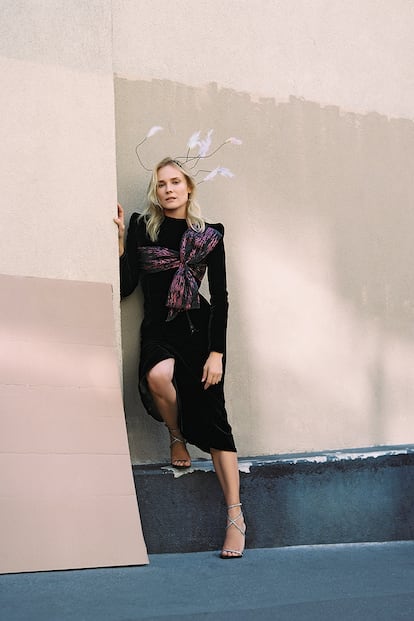
Q. Is Neil Jordan one of those old-school directors who resolves problems with explosions of rage?
A. No. I never saw him get angry. I would say that he has a kind of borderline personality disorder. If he gives you a command, you never really know what he means, and you ask him, and he stops and thinks, as if a saxophone were playing in his head.
Q. You once said that it’s really difficult to work with female directors because there are so few. Do you still think so?
A. I do. Nothing has changed. I still love working with female directors, and it’s still very different from working with male directors, but really fun.
Q. You said that right before the #MeToo movement against sexual harassment. Has anything changed?
A. It’s really hard to be a director, whether you’re a man or a woman, although in the latter case I think it’s much harder, because for a long time studios thought a woman couldn’t take the pressure of that role. Everything is changing little by little. In fact, with this last film, it surprised me a lot to see women working the cranes or on the lighting teams, which are jobs that involve lifting heavy weights and a lot of physical work. Suddenly there wasn’t a guy saying, “oh, let me carry it for you.”
Q. In that same interview, you also said that you had certain methods to captivate male directors that didn’t work with female directors. With age, has how you try to please people changed?
A. Of course. For example, I’ve never been someone who is good at parties or networking. There are a lot of actors that know how to move, make contacts, meet everyone. I’m terrible at that. I always forget names, I don’t recognize people, and I get really nervous because I don’t want to seem rude. So I don’t try as much as before.
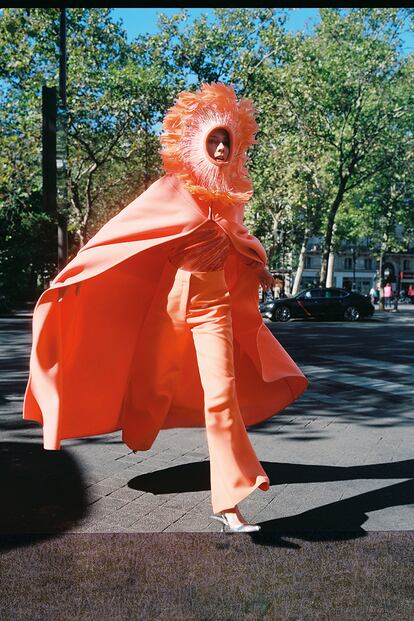
Q. Before you were an actress, you were a model, which you have described as a very formative phase. What do you mean by that?
A. It was a marvelous time, and it brought me to where I am today. It allowed me to move first to Paris and then to New York. Thanks to that I speak German, French and English, but it’s a profession that bored me after a while. I still love fashion. This morning, actually, I went to the Chanel show. But for the same reasons that I mentioned, I was incapable of playing that game.
Q. But the acting world is also quite socially demanding. What did you find there that was more stimulating?
A. Making a movie is very intimate, so much so that some could think that it’s a narcissistic activity because of all the introspection you do. It’s a process in which the more vulnerable you are, the better they receive you. In fact, that’s what you feel on a set: that a community is formed of people who share something very intimate.
Q. Was the leap from Europe to Los Angeles difficult?
A. When I arrived, it was incredible. The weather was fabulous, the size of everything… I remember seeing the gates of Universal Studios opening in front of me for the first time and passing by the giant sets and thinking that it was exactly what I had dreamed of when I wanted to be an actress. I thought, “my god, I’m living it.” That lasted for a season, but later I realized that absolutely everyone works in the same industry, everyone talks about the same things, everyone is scared of losing their jobs. It’s a brutal business that is always looking for the next star, who is younger, more beautiful, sexier, taller. Everyone is in a constant search. There is a lot of despair and loneliness in Los Angeles. And when I saw that I didn’t want to be part of that, I moved to New York, which is where I live, except now that we’re spending a year in Paris.
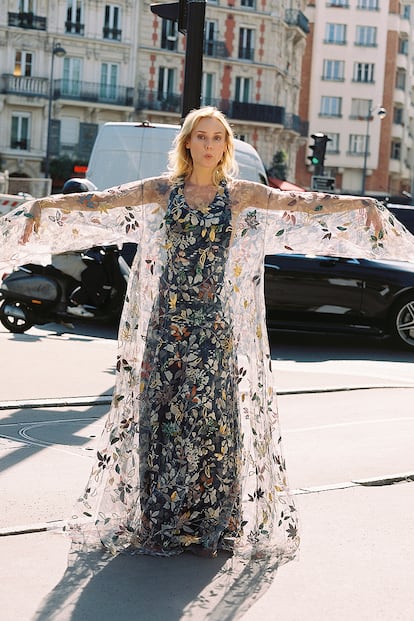
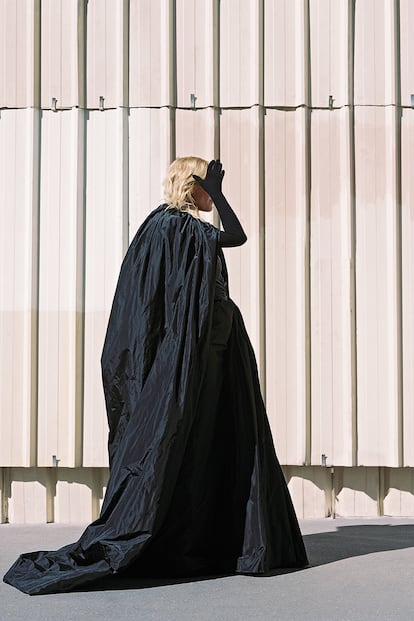
Q. In Marlowe, your character has a complicated relationship with her mother. Do you have a similar relationship?
A. Well, I was born in a really small town and my parents divorced because of a difficult situation at home. When I was 13, I went to London to study ballet, and at 15, to Paris to be a model. When I look back, I realize that my mother gave me the best gift that anyone could give a daughter: trust. I don’t know if I’d let my own daughter go to Paris alone in those conditions. I didn’t speak French, there were no cell phones, computers like we have now didn’t exist. So for many years we didn’t do anything together. But then my daughter was born and my stepfather died, and that was when my mother returned to my life to be a marvelous grandmother, who helps me go on with my career without Nova staying alone with nannies. Having had my own children has helped me understand our relationship much better: I didn’t know that my mother loved me unconditionally until I discovered how I love my daughter.
Q. Now that you’re living in Europe, where there’s such a complicated geopolitical situation, are you afraid?
A. I’m afraid about that and about climate change. In general, I’d never felt so much anxiety, to the point that some nights I can’t sleep because I think about my daughter’s future. But that was one of the reasons we moved to Paris temporarily. New York is terribly hostile right now. There is horrible violence.
Q. And what about the myth that Parisians are rude?
A. Maybe it’s a false sense of security and I live in a bubble, but I feel great here and my partner does too. And the thing about Parisians being rude is a total myth.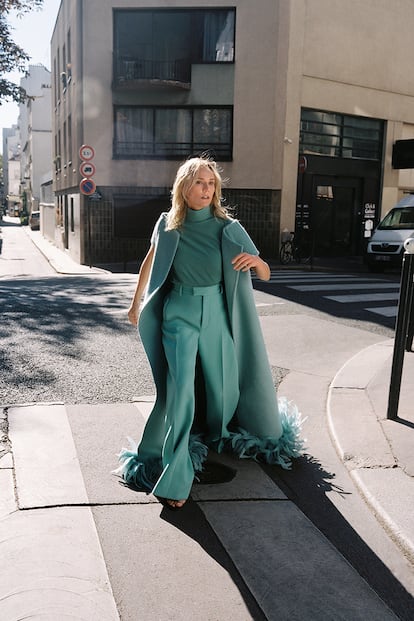
Turtleneck, pants, cape and shoes by Valentino


No comments:
Post a Comment